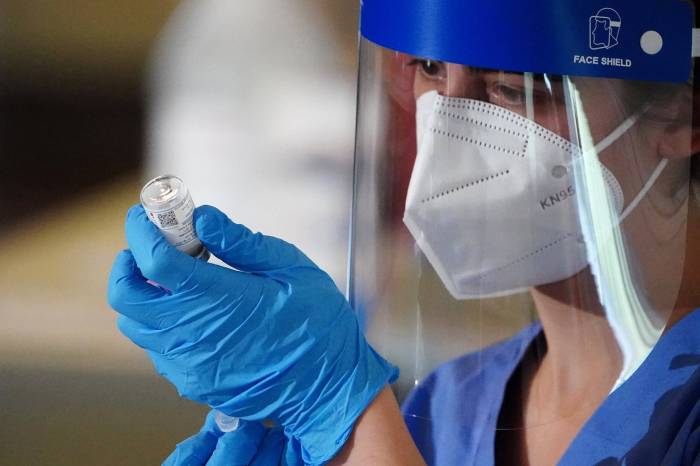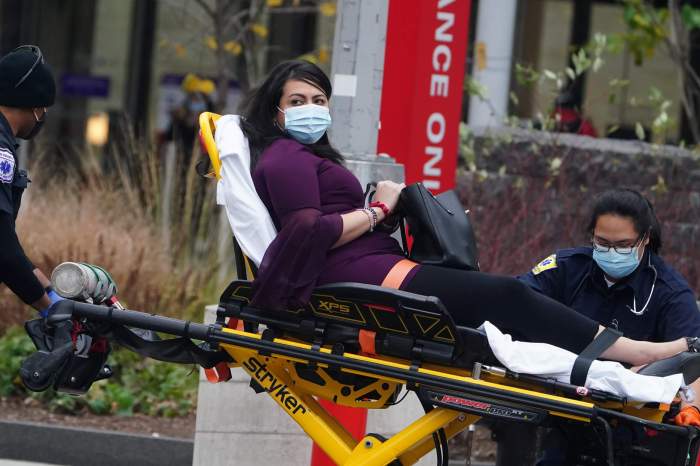Standing outside the Midtown Community Court (MCC) on West 54th Street on Friday, state Senator Brad Hoylman, alongside elected officials and community representatives demanded the NYS Office of Court Administration (OCA) fully reopen the Midtown Community Court (MCC).
Established by the Center for Court Innovation and OCS in 1993 and one of the nation’s first community courts, the MCC provides alternative sentencing instead of fines and jail time. However, during most of the COVID-19 pandemic, MCC was closed for in-person proceedings. The court reopened in March 2022 for one day a week, and elected officials and community representatives argue that one day is insufficient to address Midtown’s quality of life issues.
Elected officials and community members say that reopening the court would reduce recidivism and connect people accused of quality of life offenses with much needed services and diversion programs.
Hoylman, who also serves as chair of the State Senate Judiciary Committee, pointed out that the city finds itself in the midst of an epidemic of homelessness, drug addiction, and mental health issues.
“Yet, the one problem-solving court in Manhattan that can address these problems on the ground is closed,” Hoylman said. “Only one day a week is a judge assigned to Midtown Community Court, and we all have to thank Judge Wang for his tireless efforts.”
MCC deals with low-level crimes — or so-called “quality of life” offenses — like drug abuse, urinating in public, turnstile jumping, shoplifting, or prostitution. The court also addresses underlying problems like homelessness and links offenders to its onsite social services, which include drug and mental health counseling and job training.
It’s the court’s objective to provide offenders with the structure and support they need to avoid re-offending. Their programs also aim to address the root causes of criminal behavior, and since its inception, MCC’s model of problem-solving justice has contributed to drops in crime and the use of jail.
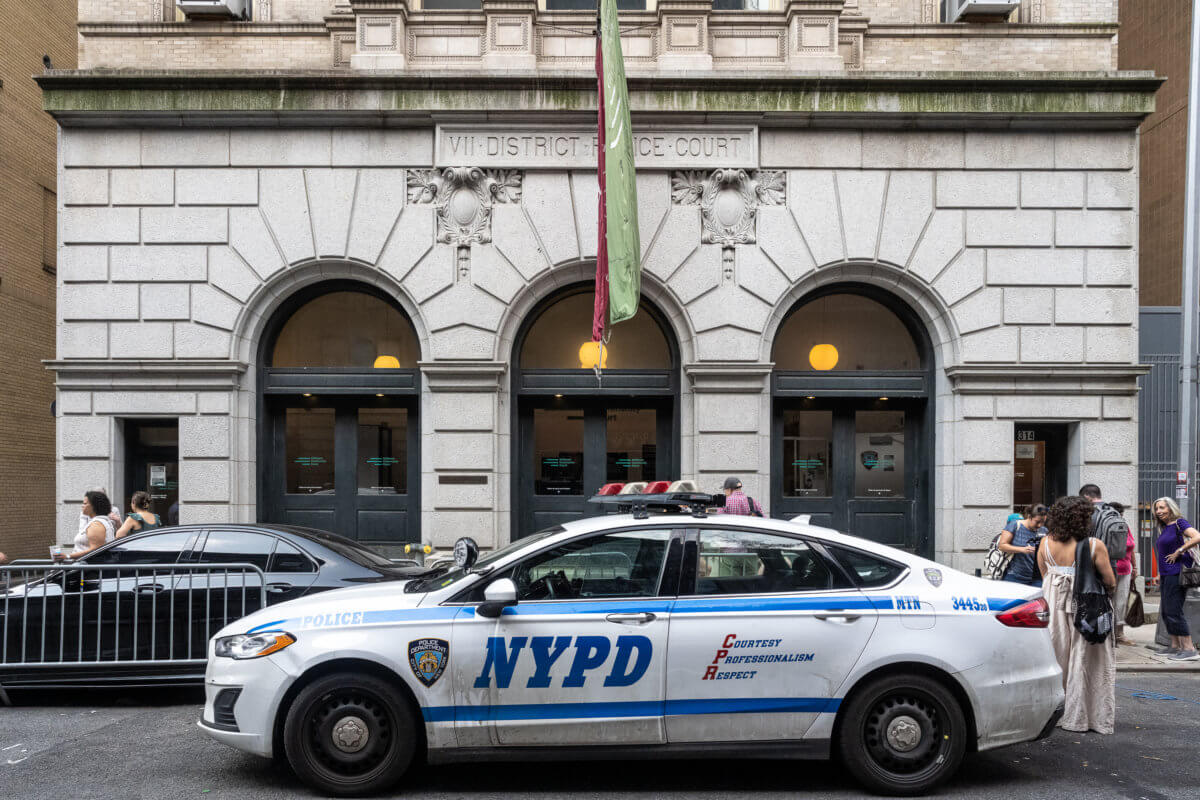
Before the COVID-19 pandemic, the court heard over 1,000 cases a year; now, officials say, it is zero. From January to June this year, some 1,000 cases that would have been adjudicated at the MCC were instead redirected to courts downtown, creating unnecessary confusion and stress.
“Midtown Community Court is invaluable,” Hoylman said. “The rapid engagement, onsite resources, the fact that you are assigned immediately when you are arraigned with the social services, all of that is so important so that we can address the chronic issues of drug addiction, of mental illness, of shoplifiting, of recidivism.”
Hoylman shared that he spoke with a lawyer who has a client at MCC. The lawyer told him that MCC is the only court where the client comes out better than they walked in.
“This is the beauty of this community court,” Hoylman expressed.
City Council Member Gale Brewer said that the city is dealing with a public safety crisis, and Mayor Eric Adams should understand that reopening the court would address many of his public safety concerns.
According to NYPD statistics, the overall crime index in New York City increased by 31.1% in June 2022 compared with June 2021.
“This court addresses the issue that the press and the people are talking about,” Brewer said.
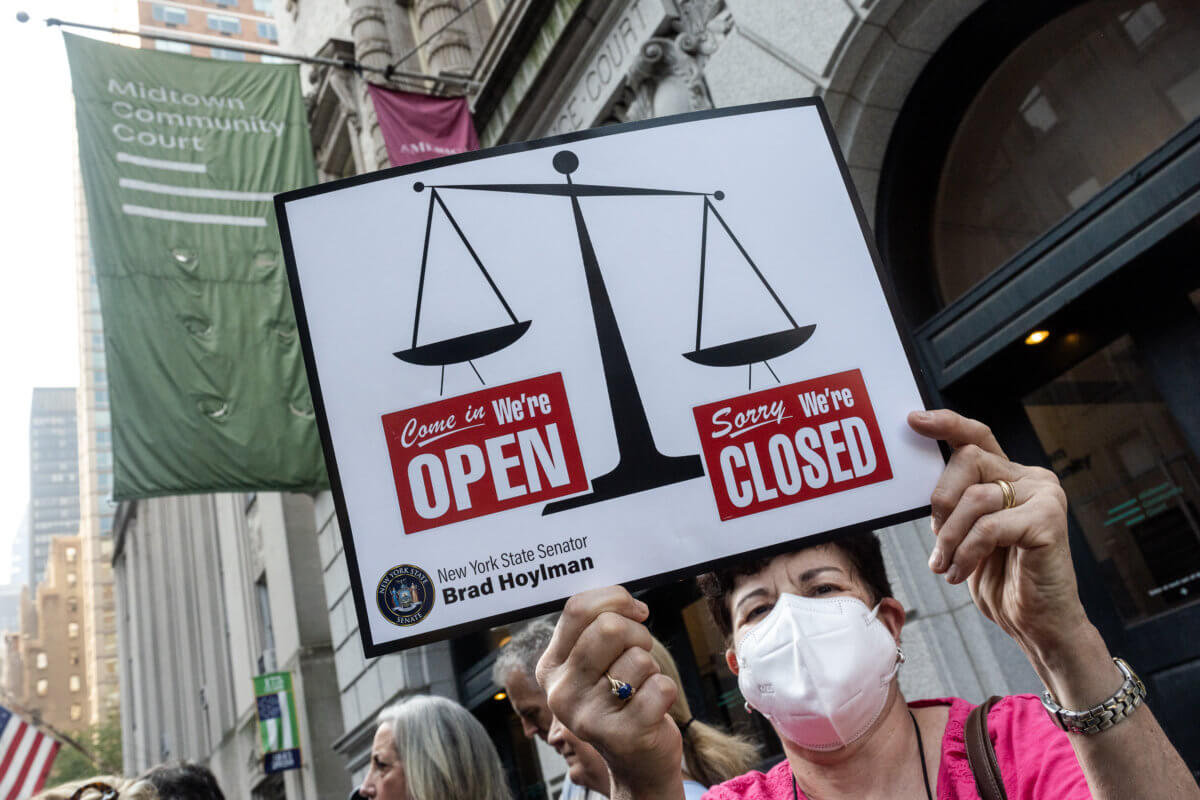
Assembly Member Dick Gottfried shared that many constituents have told him that the community is plagued with crime, mental health issues, and homelessness, affecting the quality of life.
“Midtown Community Court was a bright spot, a really effective tool for all three of those problems,” Gottfried said. “It worked together with social services agencies to get people connected to the services that they needed. So those people are better off.”
City Council Member Erik Bottcher said that the still-closed court was a “failure of government” while people suffered from untreated mental illness.
“If we don’t get a handle on these issues, New York is not going to recover from the pandemic,” Bottcher said. “We got to get a handle on these issues. We got to save lives. This is how we’re going to do it: by reopening this court.”
Midtown North Precinct Community Council President Delores Rubin, who has lived in Midtown for 53 years, said, “We need to open this court to make good on those promises, not just to those that may need that help, but to the communities that ended up seeing folks commit crimes over and over again for no reason other than they don’t get the help that they need, and they don’t know another way.”
Manhattan Borough President Mark Levine admitted that MCA was not a “cheap model” and required more investments. However, he also referred to data showing that the services MCA offers reduce recidivism and that reopening the court would be a win for public safety.
“I certainly believe that the city and state need to inject the funds into Midtown Community Court so they can provide their services at full strength,” Levine said.
amNewYork Metro reached out to the Mayor’s office for comment, and is awaiting a response.



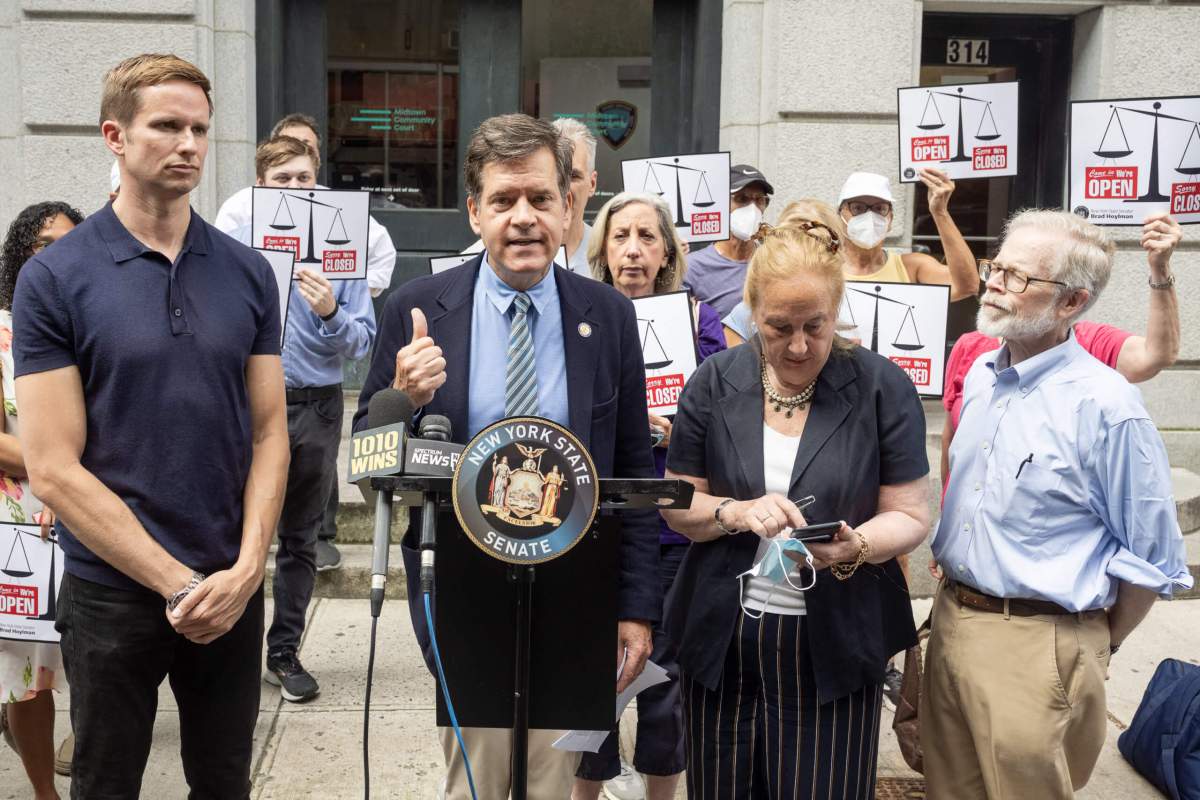






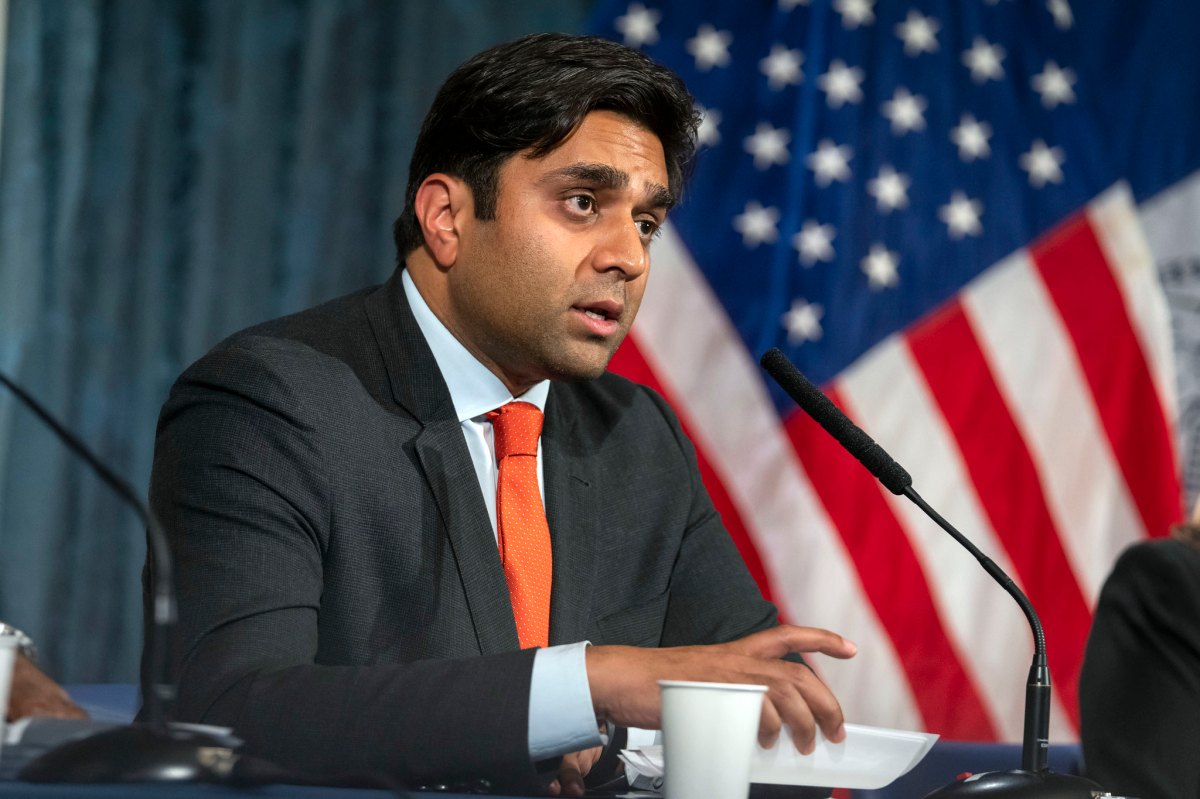


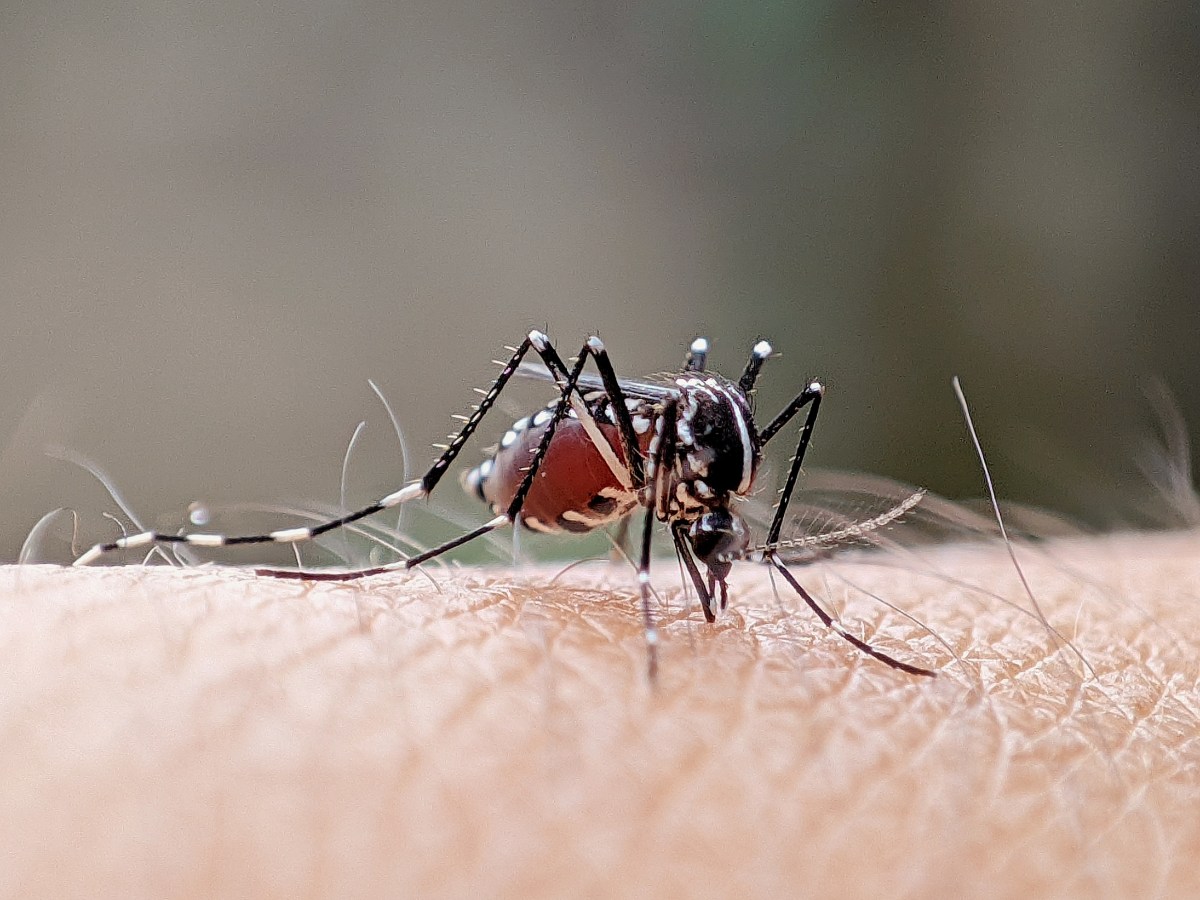









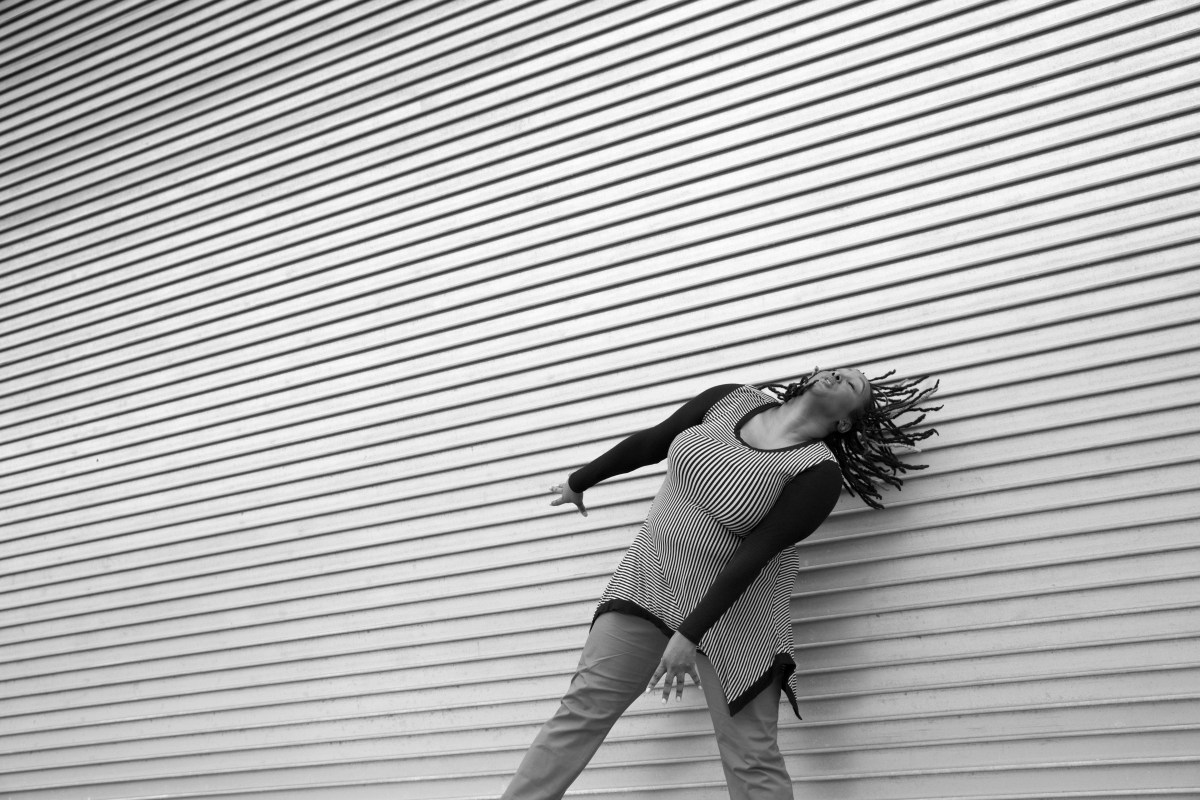



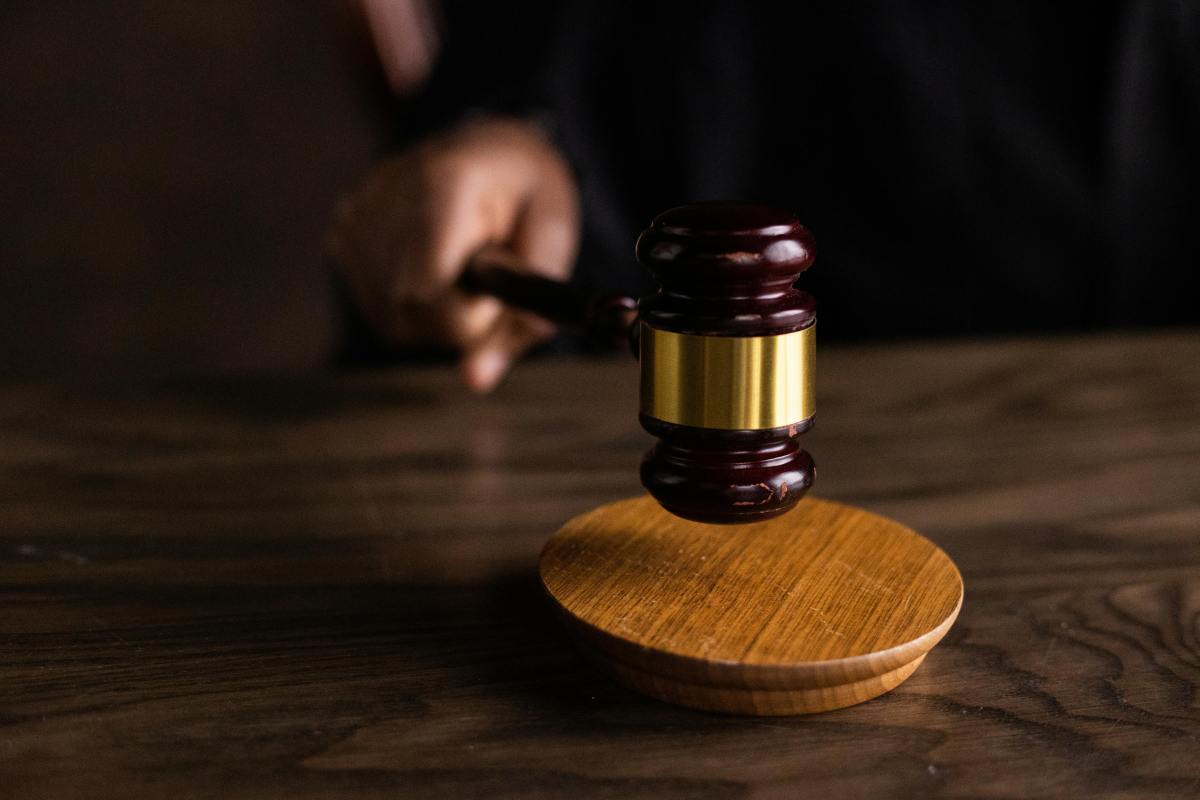


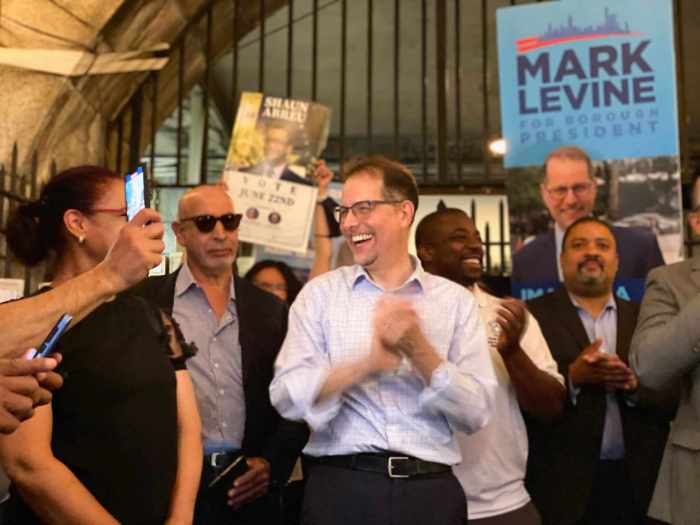
![Levine silent, but still leads big in Manhattan borough president fund-raising race 5 City Councilman Mark Levine [Photo provided by Jake Sporn]](https://www.amny.com/wp-content/uploads/2021/02/Levine-Health-Hearing-2-scaled-1.jpg?w=700)
